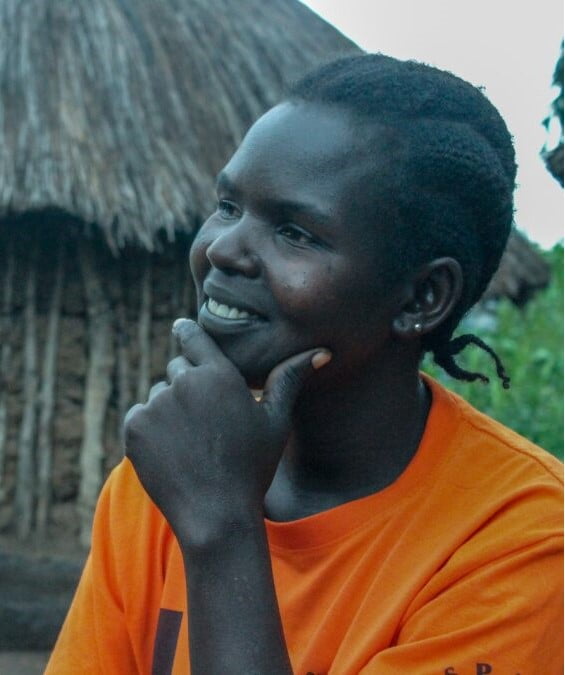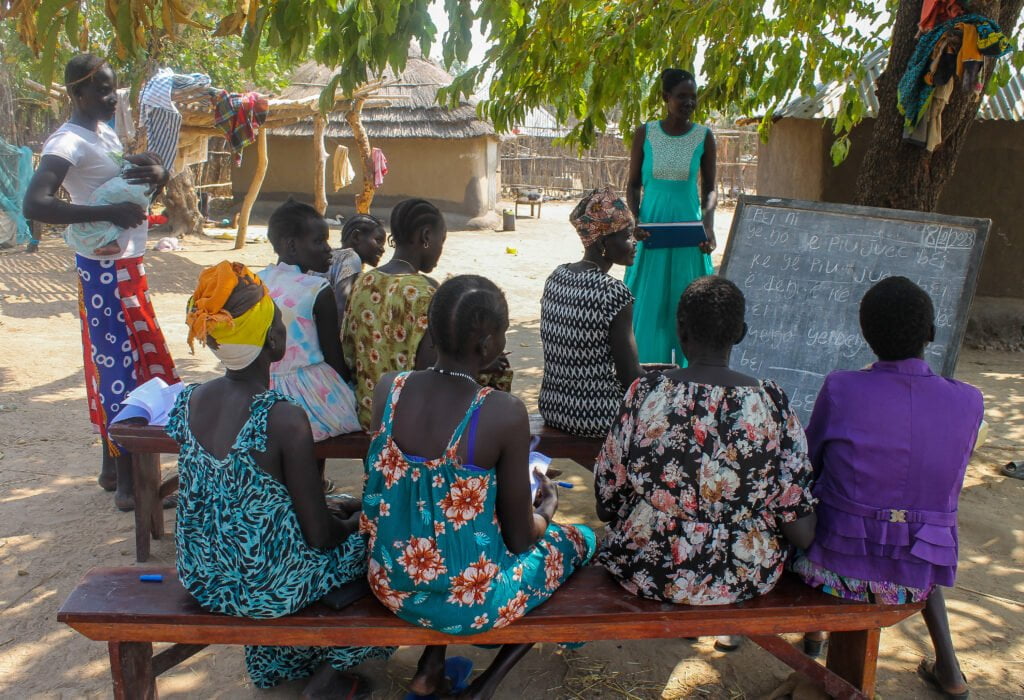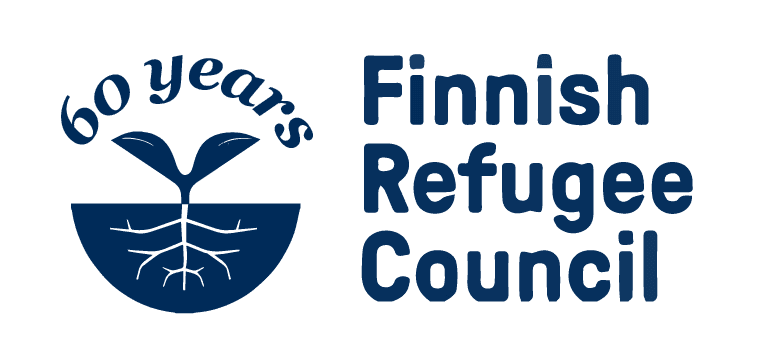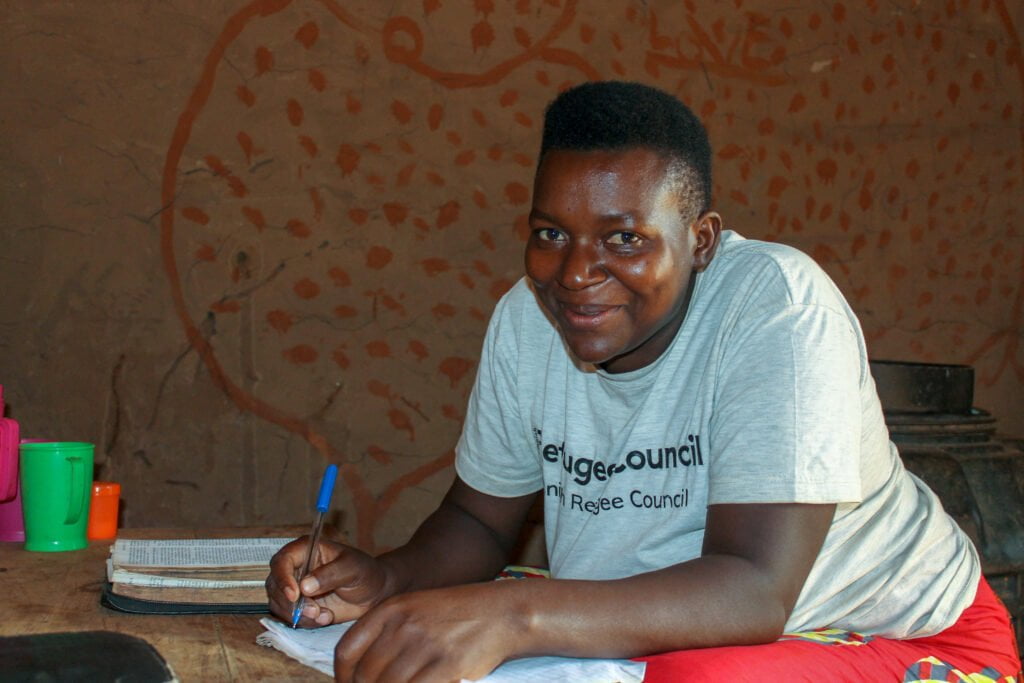It has been said that when conflict hits, women and girls are disproportionately affected, and the forced FRC Promoting Women’s Equality for Refugees and Host Communities Through Education.
FRC Promoting Women’s Equality for Refugees and Host Communities Through Education.
migration further marginalizes them. For many female refugees in Africa, the communities they belong to are deeply patriarchal and promote gender inequality. These inequalities between men and women and discrimination against women are an age long issue all over the world. And one of the tools that can be used to reduce gender inequalities in any society is education. Finnish Refugee Council (FRC) recognizes that education is a milestone of women empowerment.
“I always wanted to learn how to read and write,” shared Twishimire Aline.
Many refugee women like Aline, come to Uganda when they are already illiterate which makes them more vulnerable. And when they join FRC’s literacy program they share about their dreams and ambitions which they have failed to achieve because of a lack of education. They dream of going to school and being able to read and write. Having jobs and being able to support their families. And helping their children with their homework. Using literacy, FRC has been able to positively influence the lives of women and encourage them to achieve their dreams and hopes to become more self-reliant. Here are some stories of women whose lives were transformed because of adult literacy.
Women’s Lives Transformed Because of Education.
Adyee Hellen a refugee from South Sudan residing in Palabek Refugee settlement, in Northern Uganda shares how becoming literate, helped her discover that she had leadership potential. In her community, women are not expected to be leaders, their role is to get married, have children and take care of the home. And because of the culture, many of the women are shy and fear speak in public, it is only men who speak freely. Adyee shares that:
“I was shy and afraid to speak in public, but during the classes, the trainer would encourage us to speak up. He told us it was okay if we made mistakes, it’s the only way to learn. He also helped me see that I had the potential to be a leader in my community.”
With this confidence in herself, she was able to compete for a leadership position in her community. She notes that: “My opponents were two men, but I didn’t let that discourage me and thankfully I defeated them to become the leader in my community.”

Aydee Hellen, Uganda.
She says that her confidence in public speaking was built because of being part of the literacy program. Adyee notes that “I am no longer afraid to speak in front of many people now.”
Twishimire Aline a refugee from Burundi and currently residing in Nakivale Refugee Settlement in Western Uganda, shared that she used to be picked on by the community because of her inability to read and write and this would make her feel bad. She was unable to help her children with their work or understand road signs. But all this changed when she joined FRC’s Functional Adult Literacy program (FAL). She shares:
“I used to be mocked in the community because I did not know how to read and write. However, when the same people learnt that I had enrolled for the FRC classes they stopped disturbing me and now respect me for my decision.”
Additionally, because of being literate, she now helps community members who are still illiterate, including her husband. She says she helps him read text messages on his phone and save people’s contacts. Community members come to her to help them read their letters and write replies to the letters received, and she helps people interpret what’s written in the newspapers in the community.
Martha Aling a South Sudanese refugee living in Nyumazi refugee settlement in Northern Uganda, went from being a learner to being an instructor in FRC. She notes:
“In the beginning my husband was against me joining FRC, he used to even come with me to class to see what we were doing.”

FRC’s education for women, Uganda.
In Aling’s community, women are expected to ask their husbands for permission to do anything. Her husband eventually allowed her to attend the classes, and in 2017 she graduated. In 2018, she applied to become an instructor with FRC’s FAL program and was successfully accepted. She shared that her going to school changed the standard of living in her home. She now contributes towards the well-being of her family and provides medication for her diabetic child.
It has been said, that “if you educate a woman, you educate a nation”-author unknown. Statements like this and stories of women who are changing their communities and families show the importance of using education as a tool for inclusion in gender equality.
To read more about our work in Uganda visit https://pakolaisapu.fi/en/uganda


